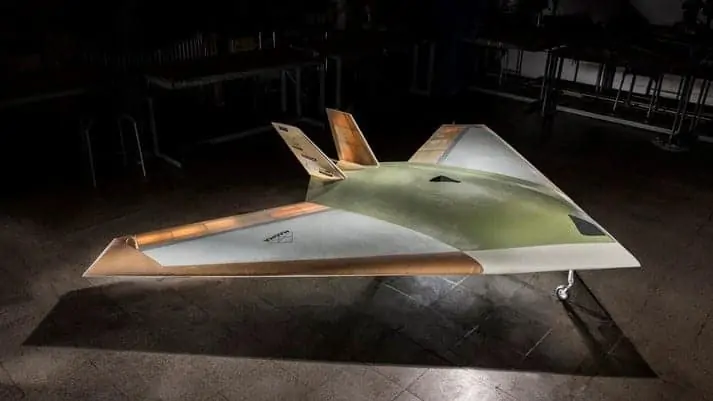BAE Systems and the University of Manchester have announced that they have successfully completed the first phase of flight trials for MAGMA – a small scale unmanned aerial vehicle (UAV) that will use a unique blown-air system to manoeuvre the aircraft – paving the way for future stealthier aircraft designs.
The new concept for aircraft control removes the conventional need for complex, mechanical moving parts used to move flaps to control the aircraft during flight. This could give greater control as well as reduce weight and maintenance costs, allowing for lighter, stealthier, faster and more efficient military and civil aircraft in the future.
The two technologies to be trialled first using the jet-powered UAV are:
- Wing Circulation Control, which takes air from the aircraft engine and blows it supersonically through the trailing edge of the wing to provide control for the aircraft
- Fluidic Thrust Vectoring, which uses blown air to deflect the exhaust, allowing for the direction of the aircraft to be changed.
The flight trials are part of an ongoing project between the two organisations and wider long-term collaboration between industry, academia and government to explore and develop innovative flight control technology. Further flight trials are planned for the coming months to demonstrate the novel flight control technologies with the ultimate aim of flying the aircraft without any moving control surfaces or fins. If successful, the tests will demonstrate the first ever use of such circulation control in flight on a gas turbine aircraft and from a single engine.
Clyde Warsop, Engineering Fellow at BAE Systems, said: “The technologies we are developing with The University of Manchester will make it possible to design cheaper, higher performance, next generation aircraft. Our investment in research and development drives continued technological improvements in our advanced military aircraft, helping to ensure UK aerospace remains at the forefront of the industry and that we retain the right skills to design and build the aircraft of the future.”
Bill Crowther, a senior academic and leader of the MAGMA project at the University of Manchester, added: “These trials are an important step forward in our efforts to explore adaptable airframes. What we are seeking to do through this programme is truly ground-breaking.”
Additional technologies to improve the performance of the UAV are being explored in collaboration with the University of Arizona and NATO Science and Technology Organisation.



















